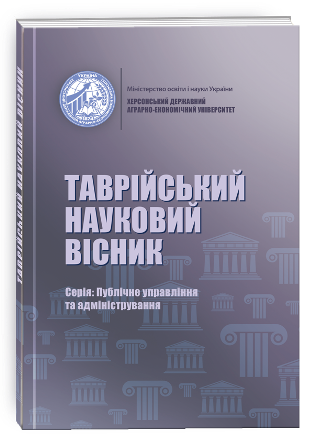THE PROCESS OF INSTITUTIONALIZING SOCIAL CONFLICT MANAGEMENT
DOI:
https://doi.org/10.32851/tnv-pub.2023.1.3Keywords:
process, management, social conflicts, institutionalizationAbstract
The article examines the process of institutionalization of Social Conflict Management. Social conflicts are processes aimed at changing public decisions or making new decisions. In most cases, the goal is to create government actions for social regulation, administrative processes, rules or regulations that streamline the activities and interventions of state actors as well as private actors, such as the activities of extractive industries. Thus, government decisions or public policies are the main causes of disputes arising from conflicts. A significant part of the production cycle of public policy is crossed by public disputes with the active participation of the media and communication platforms. In open and democratic societies, public space is the meaning of government, so the discussion takes place in an open light. On the contrary, in authoritarian societies, discussion is suppressed, disputes are hushed up, and conflicts end in violence. However, all these efforts and development have not been enough to reverse, redirect and transform the complex, intense, recurring conflicts that are rooted in true processes of development and social coexistence. This gives us a hint that conflicts need to be dealt with in parallel, urgently promoting social coexistence, respect, and democratic practices. We can then strive for a state policy of conflict transformation, which is the result of an analytical, reflexive and consensual process – and therefore with confidence – on how to conduct dialogue and organize ourselves as a country in order to directly influence the problems and structural causes that continue to give rise to social conflicts.
References
Луцишин Г.І. Конфліктологія та теорія переговорів: навч. посіб. [для студентів, аспірантів і викл. вищ. навч. закл. освіти України]. Львів: Видво Львів. політехніки, 2015. 200 с.
Ващенко І.В., Гіренко С.П. Конфлікти великих соціальних груп. Харків: Бурун-Книга, 2006. 208 с.
Свидрук, І. І. (2019). Управління конфліктами та соціальними експектаціями в діяльності організацій. Науковий вісник НЛТУ України, 29(9), 99-104. https://doi.org/10.36930/40290917
Ефективне управління конфліктами. Базові навички медіатора [тренінговий комплекс] / В. В. Волосник та ін.; за заг. ред. В. О. Мельман. Харків, 2018. 97 с. URL: http://unicon.org.ua/wpcontent/uploads/2018/03/Trenyngovyj_Kompleks_UNYKON_GIZ1.pdf
Brugué-Torruella, Quim (2014). Políticas públicas: Entre la deliberación y el ejercicio de autoridad. Cuadernos de Gobierno y Administración Pública, 1 (1), 37-55.
Cobb, R. y Elder, C. (1971). The Politics of Agenda-Building: An Alternative Perspective for Modern Democratic Theory. The Journal of Politics, 33(4) 892-915.
Garraud, P. (1990). Politiques nationales : élaboration de l’agenda. L’Année sociologique, 3(40), 17-41.
Kingdon, J. (2013). Agendas, Alternatives, and Public Policies. Pearson.
Majone, G. (2005). Evidencia, argumentación y persuasión en la formulación de políticas. Fondo de Cultura Económica
Presidencia del Consejo de Ministros (2022, 9 de enero). PCM declara “Zona de Atención Especial” a 14 comunidades de la provincia de Chumbivilcas. gob.pe. https://www.gob.pe/institucion/pcm/noticias/574863-pcm-declara-zona-de-atencion-especiala-14-comunidades-de-la-provincia-de-chumbivilcas
Stone, D. (2011). Policy Paradox: The art of political decision making. W.W. Norton & Company.
Subirats J. y Dente, B. (2014). Decisiones Públicas. El análisis y estudio de los procesos de decisión en políticas públicas. Ariel.







